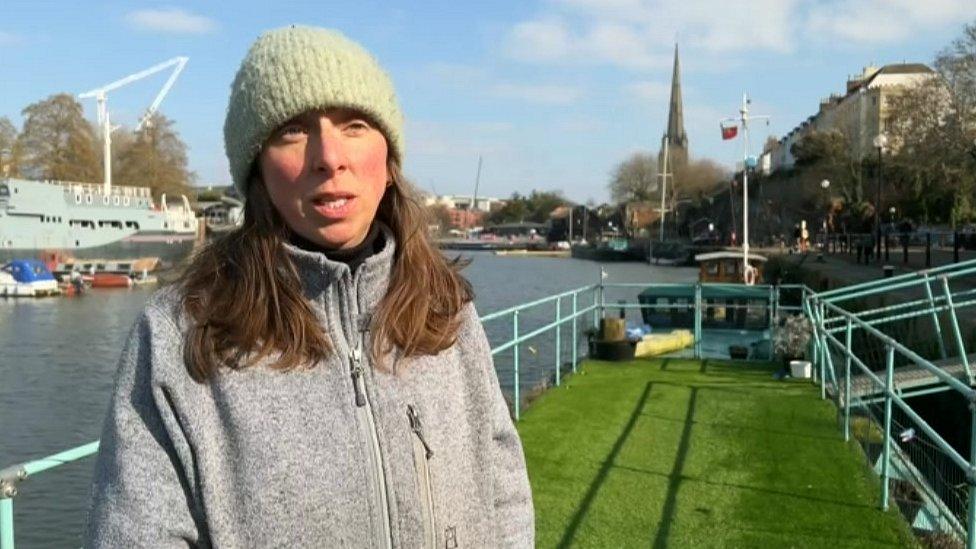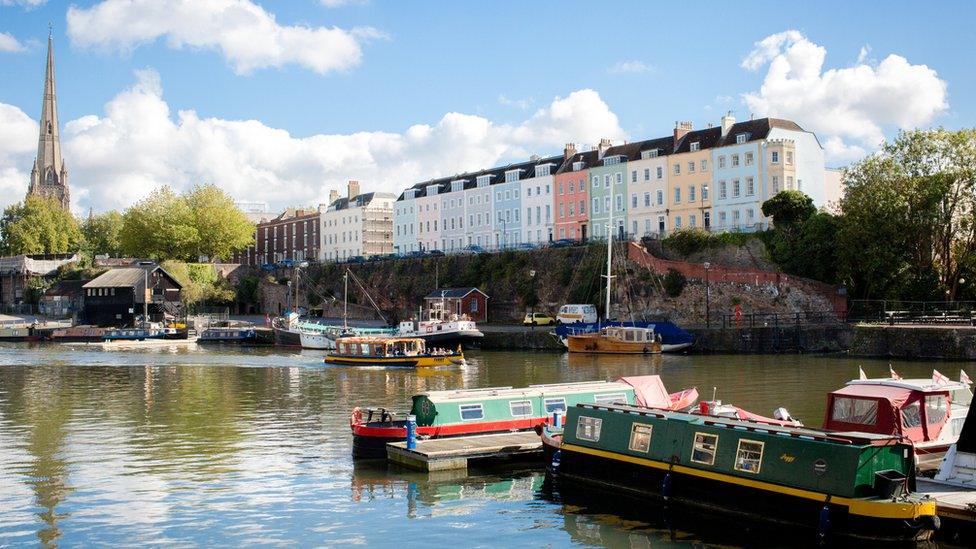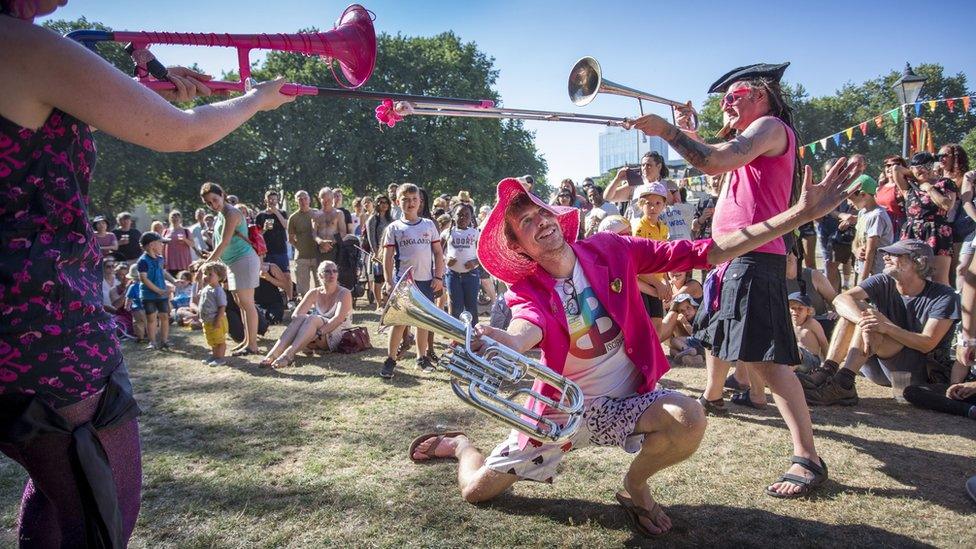Bristol Harbour community unhappy with 'huge' rise in fees
- Published

Amanda Sharman, chairwoman of Bristol Boaters Community Association, said the rise in fees would see many people having to leave
People living on boats in Bristol's docks fear being made homeless because of a "huge" rise in mooring fees.
The city council says it is increasing charges in order to make the harbour financially self-sufficient.
But those who use the docks say the speed and scale of the plans will put people "under really severe pressure" with some facing an increase of 177%.
"It's a huge increase for many people," said Amanda Sharman, chair of Bristol Boaters Community Association.
"For people using boats as homes, a lot of the time it's their only option to provide a roof over their head. It's not just a luxury vessel fee increase, these are people's homes."

The harbour community says the increase could result in people becoming homeless
People who live and work at the city's historic docks are set to see their fees doubled, but the council said the move was necessary in order to ensure the area is not a drain on its financial resources.

How are the fees changing?
Under the new plans, external, all mooring charges will increase by at least 10% and residential moorings will be priced at £325 per metre annually, which could potentially see a 177% rise in fees for some.
Commercial vessels, such as ferries, will see their operating fees double and will be charged 20p per passenger they carry.
A charge of £50 will also be introduced for commercial boats to operate Junction Bridge, Plimsoll Bridge and Prince Street Bridge, which are swing bridges.
One of the most significant rises is that of the annual tug licence, which is going up from £280.85 to £2,500.

Ms Sharman said she currently pays the council an annual fee of £2,500 but was now facing a bill of £7,500.
"The fee hikes being so big and with such little notice... there'll be a lot of boats for sale by people that are already struggling to cover their fees," she said.
"People are looking to go elsewhere so I think there will be quite a big clear-out. It's all been very secretive and behind closed doors. I really hope they can't put up these fees as much as they're saying."

Richard Rankin said the council was "taking serious liberties" with his business and his employees' jobs
Richard Rankin, owner of Number 7 boat trips, said he was worried about his business's future and while he understood the council's need to raise costs, he is unhappy about how it has been done.
"I feel they're implementing it too harshly, too soon and too fast and given the present economic climate I think they're taking serious liberties with my business and my employees' jobs," he said.
"They've got to keep it in proportion and in the present economic climate they stand to throw the baby out with the bathwater."

Trevor Gray has lived on a boat in Bristol harbour for 12 years
Trevor Gray, who has lived on a boat in the harbour since 2011, said he was worried how people on a pension would cope.
"They're the sort of people who will be heavily affected and I don't know what they're going to do. Some of them may have to leave. It's awful," he said.
"This is a city-wide asset, so to push the whole cost into boats and stakeholders that use the harbour is crazy.
"It's free to use for everyone and while boats should certainly contribute, they shouldn't be expected to pay for it all."
Protest staged
Bristol mayor Marvin Rees, was heckled at a cabinet meeting in January when the plans were discussed.
About 40 protesters gathered outside City Hall and a petition with more than 2,200 signatures was presented to the meeting demanding Mr Rees withdraws his support for the new fees.
Mr Rees said the council did not want anyone to be "forced out" and that they would work with people as they seek to "make the docks viable".
"A model in which we take money out of our general fund, from which we spend on vital crisis services, to subsidise the docks is not a model we can carry into the future, particularly in light of the state of the council's current finances," he said.
Talks are continuing but the new charges are set to be introduced in April.

Follow BBC West on Facebook, external, Twitter, external and Instagram, external. Send your story ideas to: bristol@bbc.co.uk , external
Related topics
- Published23 January 2023

- Published24 February 2023

- Published25 January 2023

- Published15 July 2022
